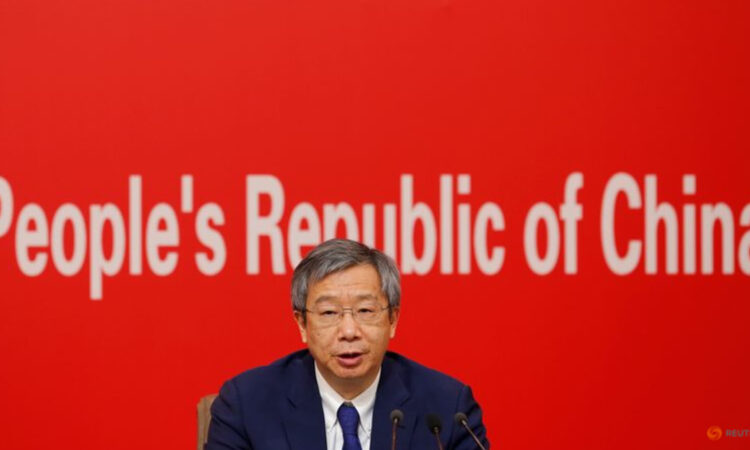
BEIJING: Yi Gang’s surprise re-appointment as China’s central bank governor on Sunday (Mar 12) means a pro-market mind of high international stature will continue to represent the world’s second-largest economy on the global stage.
Yi, 65, was widely expected to retire as President Xi Jinping installs close allies in key roles in a sweeping government reshuffle at the start of his precedent-breaking third five-year term.
A new leadership team, formed mostly of homegrown talent loyal to Xi, raises concerns among the international business community amid rising tensions between China and the West over trade, technology, the war in Ukraine and other issues.
But Yi retaining his post as the governor of the People’s Bank of China provides some relief as a familiar face, albeit at the helm of a diminished institution, focused mainly on monetary policy after the launch of a new financial watchdog.
The PBOC governor has high global exposure through institutions such as the Group of 20, the International Monetary Fund, the World Bank and others.
“Yi’s core competitiveness lies in his professional quality and international background,” Xu Hongcai, deputy director of the economic policy commission at the state-backed China Association of Policy Science, told Reuters.
“The central bank governor is not a job that can be easily taken over by someone else. We need someone like Yi who can communicate on the international stage, such as G20,” added Xu, who has previously worked at PBOC.
Yi reached retirement age and was expected to be replaced after he was dropped out of the Communist Party’s Central Committee in October. Veteran Chinese banker Zhu Hexin, who heads the state-owned CITIC conglomerate, was seen as the leading candidate for the top PBOC post.
Unlike Zhu, who built his entire career in China, Yi spent more than a decade in the United States, completing his doctorate at the University of Illinois and teaching at Indiana University, making him one of China’s highest-ranking “sea turtles”, as overseas returnees are called.
Still, he comes from a humble background, enrolling at the elite Peking University after spending several years in the countryside during Mao Zedong’s “Cultural Revolution”.



